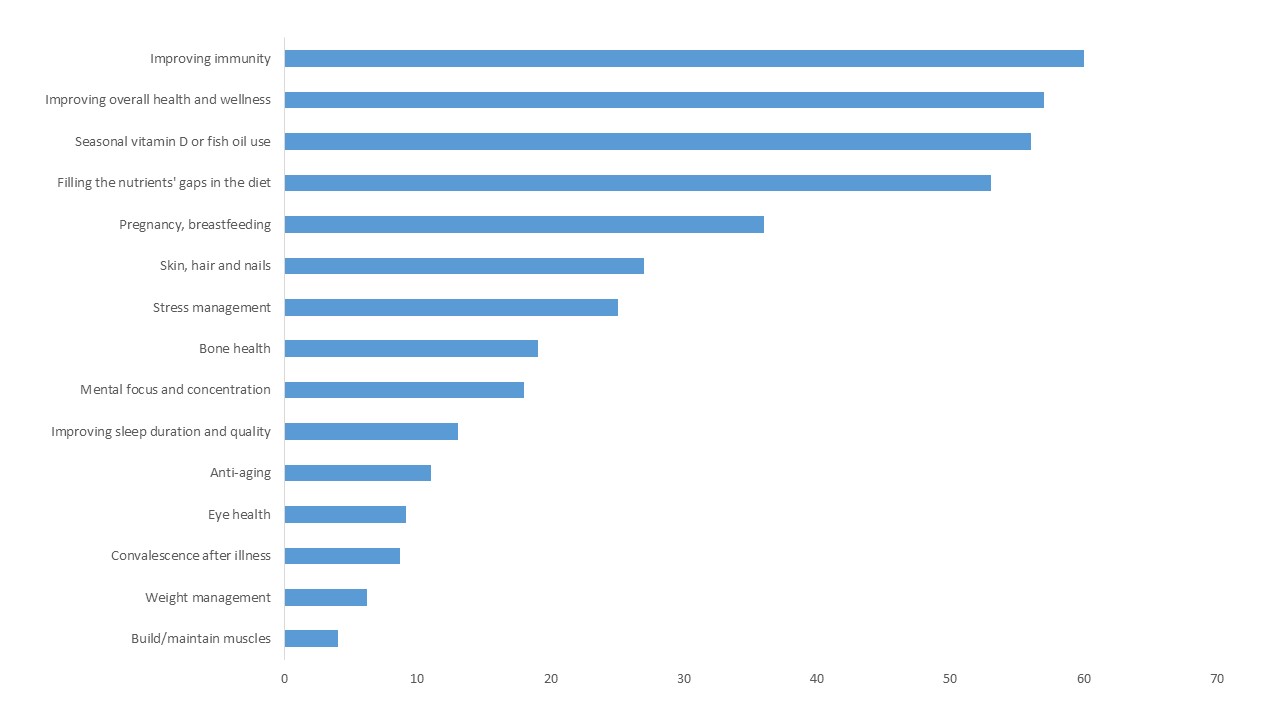COVID-19 Impact on Global Women Nutrition Market in Food and Beverages Industry
With the outbreak of COVID-19 from Wuhan, China, and then its widespread all across the world, the outbreak has affected millions. Thus it is negatively affecting the global economic growth. This economic downfall is beyond anything experienced in nearly a century. For Instance, according to World Bank, the economic growth in Asia-Pacific region is projected to fall by 0.5% in 2020. In addition, according to Economics Times, as estimated by International Labor Organization, due to COVID-19 pandemic, in 2020, 81 million jobs were wiped out in Asia-Pacific, with 10% dip in labor income. Moreover, according to International Monetary Fund, the GDP of Europe has fallen by 40 percent in the second quarters due to the spread of virus. The pandemic has impacted all industries and sectors in the market in every aspect of supply and demand requirements.
As the market has disrupted due to the pandemic, there have been some changes across market, brought in by the change in the consumption pattern of the consumers. Among these the consumption of nutritional products has increased among the consumers, especially women consumers. The reason for this increased demand is the growing health awareness among women and also during these peril times health has become a priority for the consumers.
COVID-19 has drastically affected on Supply Chain of the Nutrients
COVID-19 world pandemic imposed a new set of challenges for people to maintain a healthy diet. First, the announcement of lockdown in many countries across the globe led all public and private sector institutions to shut down, with the exception of health care institutes along with limited number of essential services. Lockdown across the countries has huge impact on the supply chain of the material; it may be nutrition, food services and other essential material. The changes in dietary pattern during the outbreak of COVID-19 also have driven the demand for essential nutrients to remain healthy and to build the immune system.
Steve Mister, CRN’s president and CEO, said in a letter to the USDA that dietary supplement companies, by and large, have a more elaborate supply chains in comparison to other food and beverage manufacturers. He also stated that, coronavirus has radically boosted the demand for dietary supplements among consumers across the regions. This increased demand for nutrients is due to awareness for improved nutrition intake, growing intake of sleep and stress relief supplements, and need of strong immune function to improve resistance towards COVID-19. This increased sale of supplement has created a new need in demand which is mismanaged due to restrictions in the market over the supply chain. Moreover, transportation is largely impacted due to shortages in workforce, less availability of freight capacity and increased costs due to restriction in the supply and lack of stock.
Increased demand for Vitamin D and C, Zinc and Selenium Supplements
Globally, research and developemnet team of pharmaceutical and biotechnoloical companies are working together to provide feasible solutions for immunity building supplements during the COVID-19 pandemic. There are no clear and convincing reports that back-up the importance of dietary supplements consumption in preventing COVID-19, except for vitamin D and C, zinc, and selenium. Reaserches have been carried out for Vitamin C, Vitamin D, and omega 3 fatty acid found in fish, generally known as DHA, are critical health supplements for boosting immunity. Vitamin C plays a major role in several aspects of immunity, including the growth and function of immune cells and antibody production. Vitamin C also functions as an antioxidant, protecting against damage induced by oxidative stress which occurs with the accumulation of reactive molecules known as free radicals. It also helps in reducing severity of upper respiratory tract infections including common cold. It significantly improves symptoms in people with severe infections, including sepsis and acute respiratory distress syndrome (ARDS) resulting from viral infections.
For instance,
Studies carried out by PLifeCOVIC-19 studies revealed that the most common nutrients supplemented during the first and second wave of COVID-19 were,
|
Nutrients
|
First wave of COVID-19
|
Second wave of COVID-19
|
|
vitamin D
|
38%
|
67%
|
|
vitamin C
|
17%
|
37%
|
|
omega-3 fatty acids
|
15%
|
35%
|
Those nutrients were followed by folic acid (15%) and magnesium (15%) or vitamins B (33%) and folic acid (32%).
Consumption of these nutrients to prevent the individuals from COVID-19 has strongly impacted on the global women nutrition market during pandemic period.
Pregnant Women suffered more by Lacking Essential Nutrients during Outbreak of COVID-19
Pregnant women and mothers of young children are majorly affected by COVID-19, and especially when they have other underlying medical conditions. In principle, lockdown protocols in most countries do not prohibit health related travel, but on the other side healthcare providers as well as patients were less willing to travel for non-emergency check-up due to preventive care including nutrition counselling and micronutrient supplement distribution. According to world helath organization, it is estimated that more than 40% of pregnant women across the world are anaemic and among them at least half of this anaemia burden is due to iron deficiency.
Following is the data for usage of nutrition by consumer for various purposes- Global nutrition manufacturers: Perspective & Initiatives
Global nutrition manufacturers: Perspective & Initiatives
Valuing their partnership during the Coronavirus pandemic, Mead Johnson and Enfamil, have continued to manufactucture, products like formulas, vitamins and others, taking care of the health and safety of infants and children around the world.
Christina J. Valentine, North America Medical Director, RB/Mead Johnson Nutrition
“In February, DSM shipped 50 tons of Vitamin C from its Jiangshan site in China to Hubei province to help fight the outbreak. Our Scotland plant has been producing Vitamin C regularly and during the outbreak it has also received strong demand for Vitamin C products.”
Dr. Jiang Weiming, President, DSM, China
“Another issue is the qualification of a new vendor in case the usual supply chain is no longer able to deliver the ingredient. While companies often have a backup supplier, this may not be the case for all ingredients. There may be situations when there is a lot of pressure on procurement managers to find new suppliers quickly. However, companies may be better off to have a product out of stock rather than to approve a new supplier without having done a thorough audit, as required by GMPs for supplier qualification.”
Stefan Gafner, PhD, chief science officer for ABC and technical director of the Botanical Adulterants Prevention Program (BAPP)
“China is going to lose a lot of their primary manufacturing status in this industry.” He continues: “I think ‘Made in China’ is going to be a long-term problem for many years to come. People are going to be willing to pay more for products that have no exposure to China. The challenge is to reactivate the primary chemical industry that 30 or 40 years ago supplied these vitamins and other compounds to industry.”
Mark LeDoux, CEO of Natural Alternatives International, Inc.
Conclusion
Pandemic has taken toll on every aspect of life, including the global economy. With the major downfall in many sectors, a collaborative effort of government, industry player and consumer can win the fight against COVID-19. The general measures for public health include, awareness about home isolate, keeping up with the food and medical supplies, particularly for underprivileged people is carefully followed by government around the world. During this pandemic circumstance, consumer awareness about high immunity has become a legitimate concern. Consumers have been shifting there buying presences from offline to online retails, to maintain social distancing. Lockdown mostly all over the world has resulted in disruption in the supply and demand chain. All sectors including women nutrition, has to suffer from various problems such as labor unavailability, inability to access markets, and lack in the availability of resources & raw material among others. But the situation is expected to improve with increase in demand, post-pandemic.







